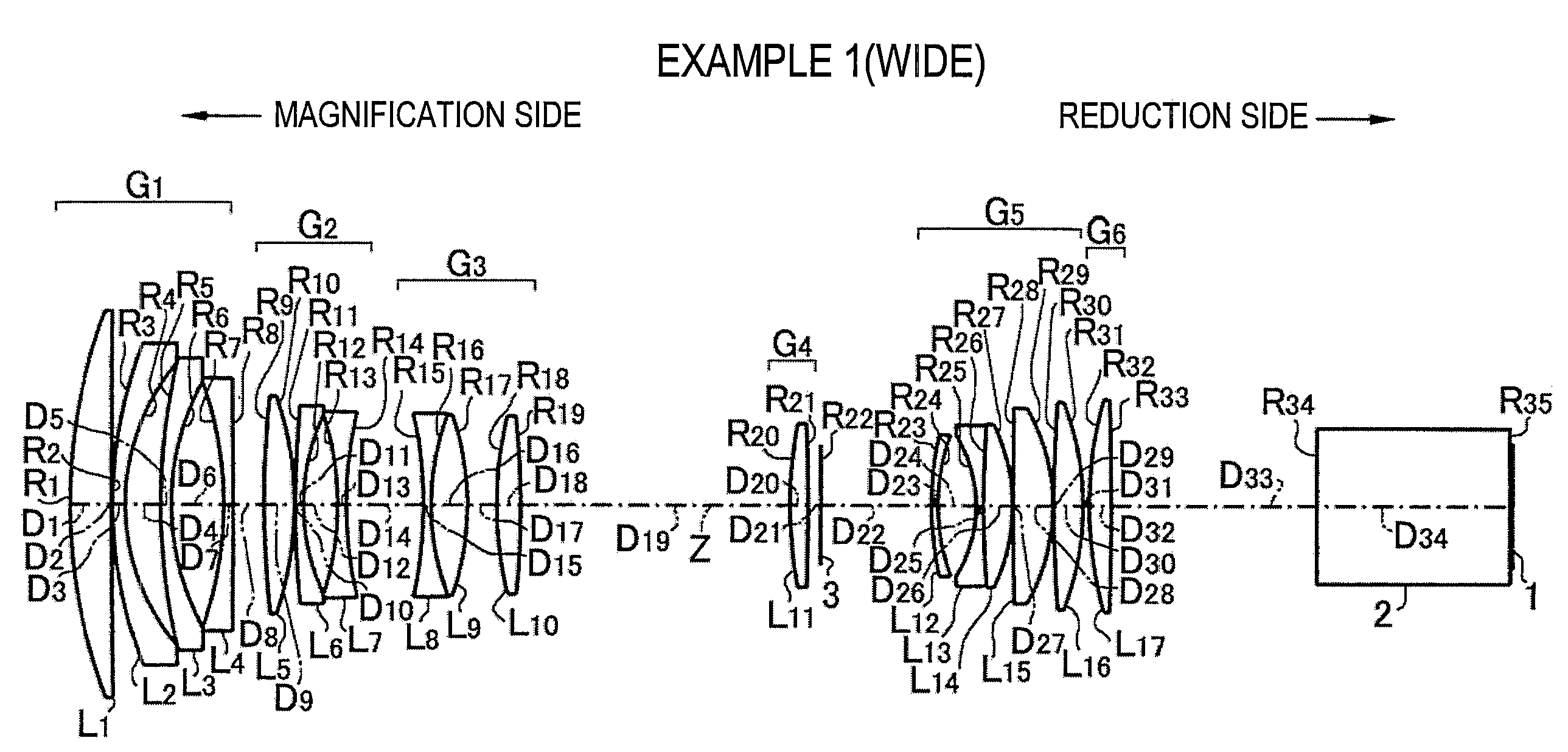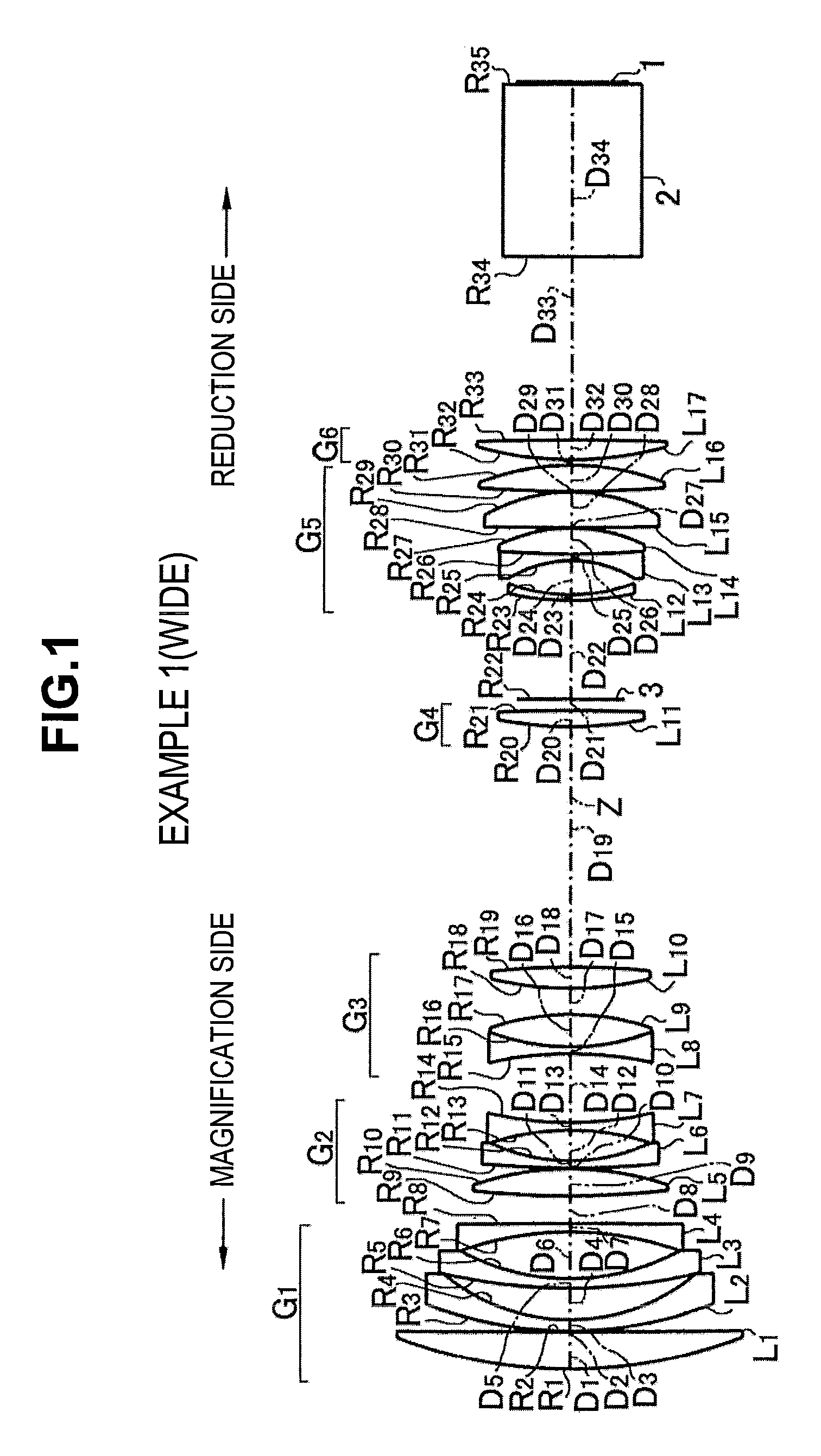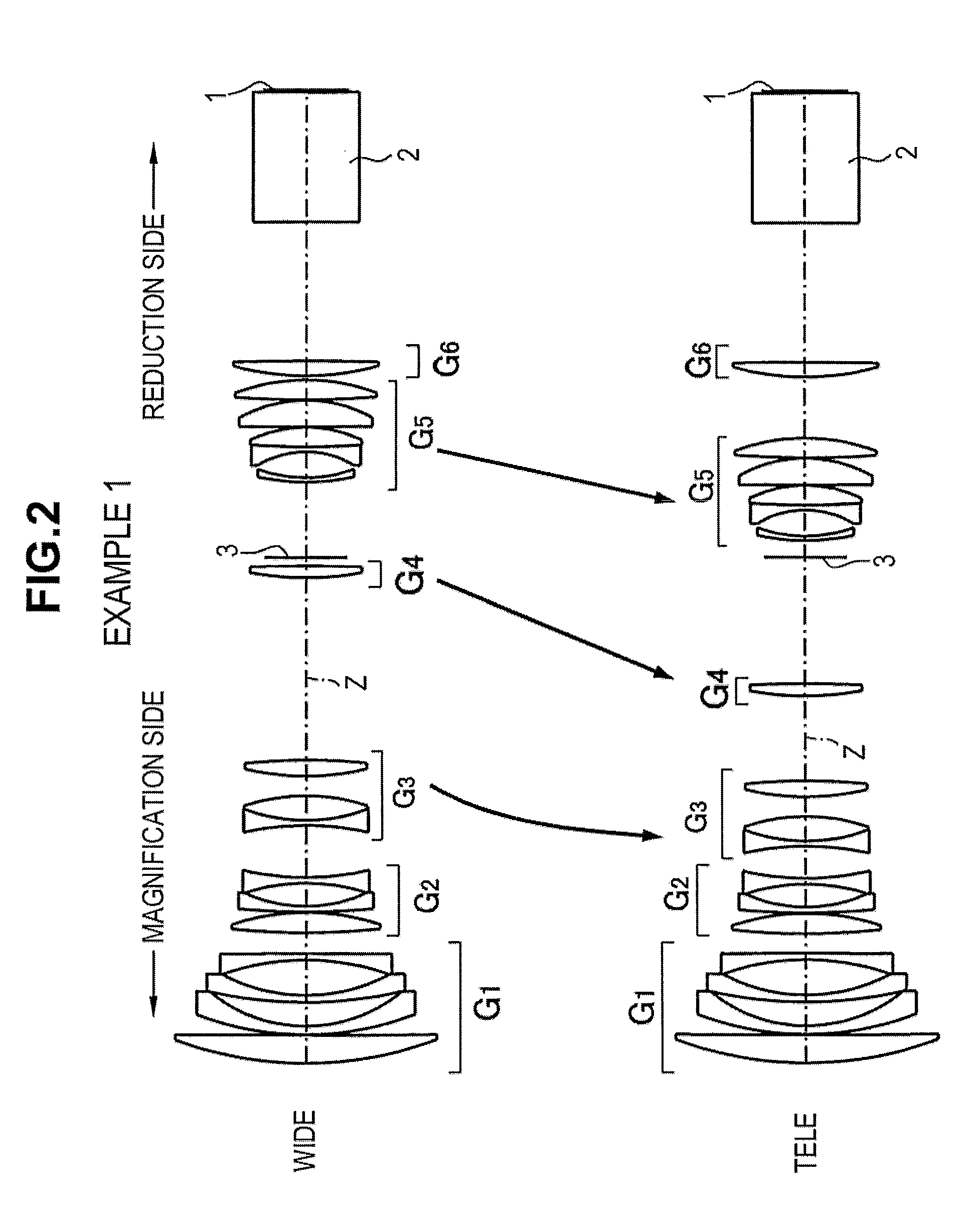Projection zoom lens and projection-type display apparatus
- Summary
- Abstract
- Description
- Claims
- Application Information
AI Technical Summary
Benefits of technology
Problems solved by technology
Method used
Image
Examples
example 1
[0088]The projection zoom lens system according to Example 1 has a configuration shown in FIG. 1 as described above. Specifically, in the lens, the first lens group G1 includes, in order from the magnification side: the first lens L1 formed as a positive meniscus lens convex toward the magnification side; the second lens L2 formed as a negative meniscus lens convex toward the magnification side; the third lens L3 formed as a negative meniscus lens convex toward the magnification side; and the fourth lens L4 formed as a negative meniscus lens convex toward the reduction side. The second lens group G2 includes, in order from the magnification side: the fifth lens L5 formed as a biconvex lens; the sixth lens L6 formed as a negative meniscus lens convex toward the magnification side; and the seventh lens L7 formed as a biconcave lens.
[0089]Further, the third lens group G3 includes, in order from the magnification side: the eighth lens L8 formed as a biconcave lens; the ninth lens L9 for...
example 2
[0103]FIG. 3 shows a schematic configuration of the projection zoom lens according to Example 2. The projection zoom lens has a six-group configuration substantially the same as that of Example 1. However, the projection zoom lens is different in that the fifteenth lens L15 constituting the fifth lens group G5 is formed as a positive meniscus lens convex toward the reduction side.
[0104]FIG. 4 shows moved positions of the lens groups at the wide-angle end (WIDE) and the telephoto end (TELE) in the projection zoom lens according to Example 2.
[0105]As shown in FIG. 4, during zooming, the first lens group G1, the second lens group G2, and the sixth lens group G6 are formed as fixed groups, and the third to fifth lens group G3 to G5 are formed as movable groups.
[0106]Further, the aperture (the variable aperture stop) 3 is disposed between the fourth lens group G4 and the fifth lens group G5. During zooming from the wide-angle end to the telephoto end, the aperture is moved from the reduc...
example 3
[0115]FIG. 5 shows a schematic configuration of the projection zoom lens according to Example 3. The projection zoom lens has a six-group configuration substantially the same as that of Example 1. However, the projection zoom lens is different in the following points. First, the fourth lens L4 constituting the first lens group G1 is formed as a biconcave lens. Second, the third lens group G3 includes, in order from the magnification side: the eighth lens L8 formed as a negative meniscus lens convex toward the magnification side; and the ninth lens L9 formed as a biconvex lens. Third, the sixteenth lens L16 constituting the sixth lens group G6 is formed as a piano-convex lens convex toward the magnification side. Furthermore, the fourth lens group G4 includes only the tenth lens L10, and the fifth lens group G5 includes the five lenses L11 to L15
[0116]FIG. 6 shows moved positions of the lens groups at the wide-angle end (WIDE) and the telephoto end (TELE) in the projection zoom lens...
PUM
 Login to View More
Login to View More Abstract
Description
Claims
Application Information
 Login to View More
Login to View More - R&D
- Intellectual Property
- Life Sciences
- Materials
- Tech Scout
- Unparalleled Data Quality
- Higher Quality Content
- 60% Fewer Hallucinations
Browse by: Latest US Patents, China's latest patents, Technical Efficacy Thesaurus, Application Domain, Technology Topic, Popular Technical Reports.
© 2025 PatSnap. All rights reserved.Legal|Privacy policy|Modern Slavery Act Transparency Statement|Sitemap|About US| Contact US: help@patsnap.com



